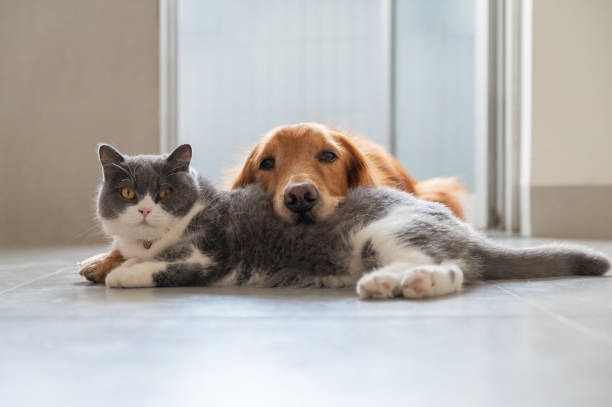Pet owners often prioritize diet, exercise, and vaccinations but overlook dental care. Pets can suffer from dental problems, leading to serious health issues if untreated. Regular check-ups, including with internal medicine vets, are crucial as they can diagnose and treat complex conditions linked to poor dental health. Dental infections can cause systemic issues like heart, liver, or kidney problems. Internal medicine vets provide comprehensive care, emphasizing the importance of dental health in overall pet well-being and preventing severe complications.
What Does a Pet Dentist Do?
A pet dentist specializes in diagnosing, treating, and preventing dental diseases in pets. They perform routine cleanings, extractions, and other dental procedures to ensure your pet’s mouth remains healthy. Regular visits to a pet dentist can help prevent a host of problems down the line.
The Role of Pet Dentists Beyond Cleaning
Aside from providing cleanings, pet dentists also educate pet owners on the best practices for at-home dental care. They can recommend appropriate dental products, such as toothbrushes, toothpaste specifically designed for pets, and dental treats that can help keep your animal’s teeth clean and healthy between visits.
Common Dental Issues in Pets
Pets can face various dental issues, such as periodontal disease, tooth decay, and gingivitis. Unfortunately, these problems can cause immense pain and may even lead to more severe health complications, including heart disease and kidney problems.
Signs Your Pet Needs Dental Care
-
Bad Breath
-
Difficulty Eating
-
Swollen Gums
-
Loose or Missing Teeth
-
Excessive Drooling
Internal Medicine Vets for Comprehensive Pet Health
While dental care is crucial, it’s equally important to address the other aspects of your pet’s health. A veterinary internist in San Jose, CA, plays a vital role in this regard by offering specialized care for complex conditions affecting your pet’s overall health.
What Internal Medicine Vets Specialize In
Internal medicine vets diagnose and treat a wide range of conditions, including but not limited to:
-
Endocrine Diseases (Diabetes, Thyroid Disorders)
-
Gastrointestinal Issues (IBS, Chronic Vomiting)
-
Respiratory Problems (Asthma, Pneumonia)
-
Kidney and Liver Diseases
-
Autoimmune Disorders
When to Consult an Internal Medicine Vet
If your pet has been showing signs of chronic illness or if your regular vet has recommended further specialized care, consulting with an internal medicine vet is crucial. These experts utilize advanced diagnostic tools and treatments to manage and treat complex health issues effectively.
Making the Right Choice for Your Pet
Choosing the right specialists for your pet can seem daunting, but the key is to look for qualified professionals with experience and good reviews. Consider clinics with a comprehensive range of services to ensure your pet gets all the care they need under one roof.
Local Options for Pet Care
For example, if you live in California, consider looking into a cat & dog dentist in San Jose, CA, who can offer specialized dental care for your furry friends. Similarly, finding a reliable veterinary internist can help manage chronic and complex health issues that require expert attention.
Do You Really Need Both Specialists for Your Pet?
It might seem overwhelming to need both a pet dentist and an internal medicine vet, but both types of specialists offer essential services that complement each other. Dental issues can manifest as symptoms related to larger internal problems and vice versa.
The Benefits of Comprehensive Care
Combining regular dental care with comprehensive internal health check-ups can ensure that your pet remains happy, healthy, and pain-free. Preventative care in both these areas can also be cost-effective in the long run, potentially avoiding expensive emergency treatments.
Collaborative Care Between Specialists
When pet dentists and internal medicine vets collaborate, they can offer a more holistic approach to pet health. This collaborative care model ensures that all aspects of your pet’s well-being are monitored and treated effectively.
One good practice is to check their home page for information on the services they offer, their credentials, and customer reviews. This way, you can get a sense of their expertise and the quality of care they provide.
Preventative Measures You Can Take at Home
-
Regular Health Monitoring: Monitoring your pet’s overall health can catch potential issues early. Pay attention to any changes in behavior, eating habits, or physical appearance. If you notice symptoms such as lethargy, weight loss, or changes in coat condition, these could be signs of underlying health problems that require attention.
-
Balanced Diet: A well-balanced diet plays a vital role in your pet’s overall health, including dental health. Certain foods can help prevent plaque, and your vet can recommend a diet that supports not just oral health but overall well-being.
-
Hydration: It is essential to ensure your pet has access to clean, fresh water at all times. Proper hydration aids in maintaining overall health and can help wash away food particles that contribute to plaque buildup.
Final Thoughts
In conclusion, pet dentists and internal medicine vets are vital to your pet’s overall health and well-being. By addressing both dental and internal health needs, you can ensure your pet lives a long, happy, and healthy life. Regular dental check-ups can prevent severe issues, while internal medicine vets can diagnose and manage complex health conditions. Don’t hesitate to invest in specialized care for your beloved pet; their health and happiness are worth it. Comprehensive care is essential for a thriving and content pet.

